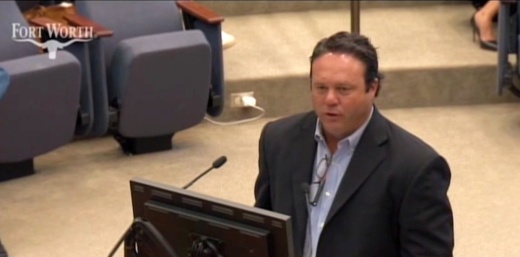The Fort Worth City Council voted unanimously during their regular meeting on Nov. 29 to adopt an increased collection rate for assessed impact fees for transportation facilities.
Currently, developers pay 30% of impact fees, which are fees the City charges to a development when the City’s transportation infrastructure is expanded to service that new development. Expanded services can include everything from streets and bridges to sidewalks.
Beginning June 1, 2023, that percentage will increase to 50% with annual increases of 5% percent, up to 65%. The ordinance also amends the Fort Worth City Code to exempt public and charter schools serving kindergarten-12 from paying impact fees.
Several local developers were in attendance at the meeting to voice their concerns about how these increases would negatively impact potential homebuyers in the Fort Worth area due to developers needing to pass along the cost of increased fees.
“Home ownership in Fort Worth creates that more stable neighborhood, those more stable schools, those more stable communities. And the biggest threat to homeownership in Fort Worth is the affordability crisis,” said Clint Vincent, Vice President of Land with Bloomfield Homes. “This is going to be a gut-punch to the housing industry across Fort Worth. No developer is going to build and lose money.”
Travis Clegg, Principal/Vice President with Peloton Land Solutions echoed Vincent’s point with hard numbers about how increased fees would make houses even less affordable for more Fort Worth families.
“Every $1,000 increase [in home price] is 20,000 Texas families that can’t afford to qualify for a home. So if we’re raising things $10,000, it’s compounded pretty heavily,” Clegg said.
He also pointed out that with inflation being at a 40-year high, now might not be the best time for an increase. “If things are great in the next 12 to 18 months, let’s have this conversation again,” he said.
Council Member Elizabeth Beck pushed back against the developers’ notion that increasing the impact fees would affect affordability.
“I think it’s important for the public to understand that when we talk about a rate, when we talk about 40% or 50%, that’s a percentage of the actual cost of improving the transportation needs for a particular development,” she said. “ When we set the rate at 50%, we are subsidizing corporations at 50%. We are telling our residents that you, in the form of your taxes or bond dollars, are subsidizing builders to build.”
With the dramatic increase in housing prices over the past few years—the median home price in Fort Worth jumped nearly 50% between August 2020 and May 2022—affordability remains an issue. However, Fort Worth’s current 30% impact fee that it charges developers is below impact fee rates in other area cities.
“A business gets to set their price and determines how much return they get for the price they set,” Beck said. “[Impact fees] could very well be passed on to the buyer, and that’s the homebuilder’s decision to make instead of setting a price for a home that incorporates the cost of doing business.”





